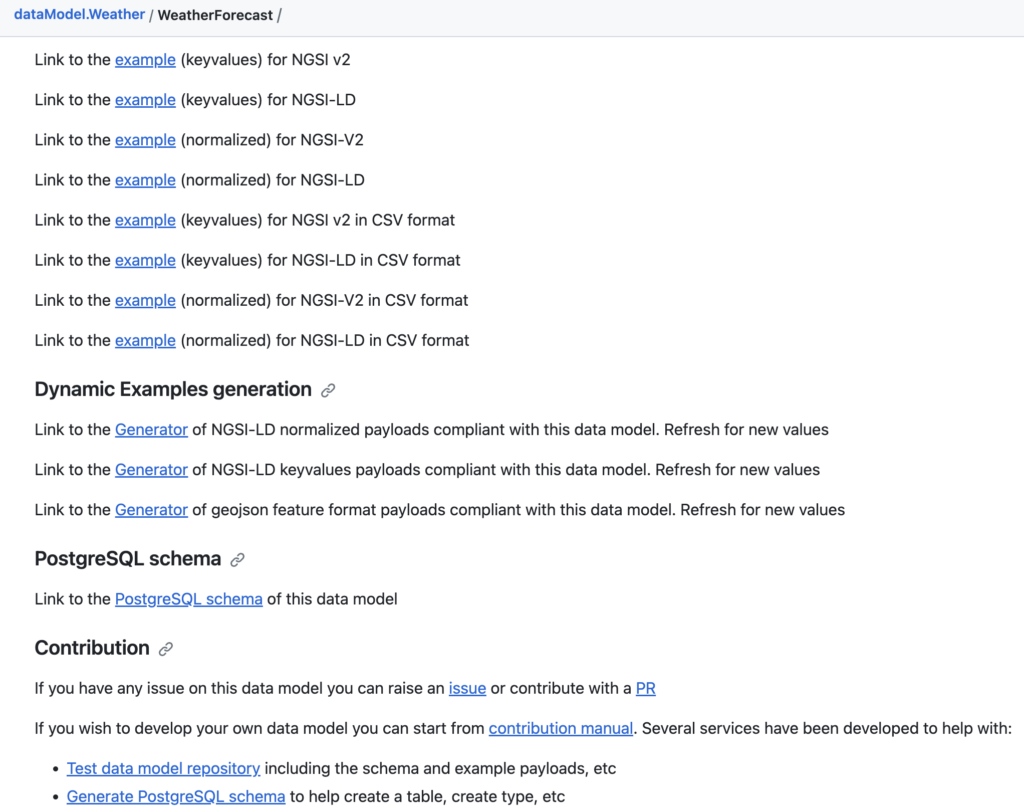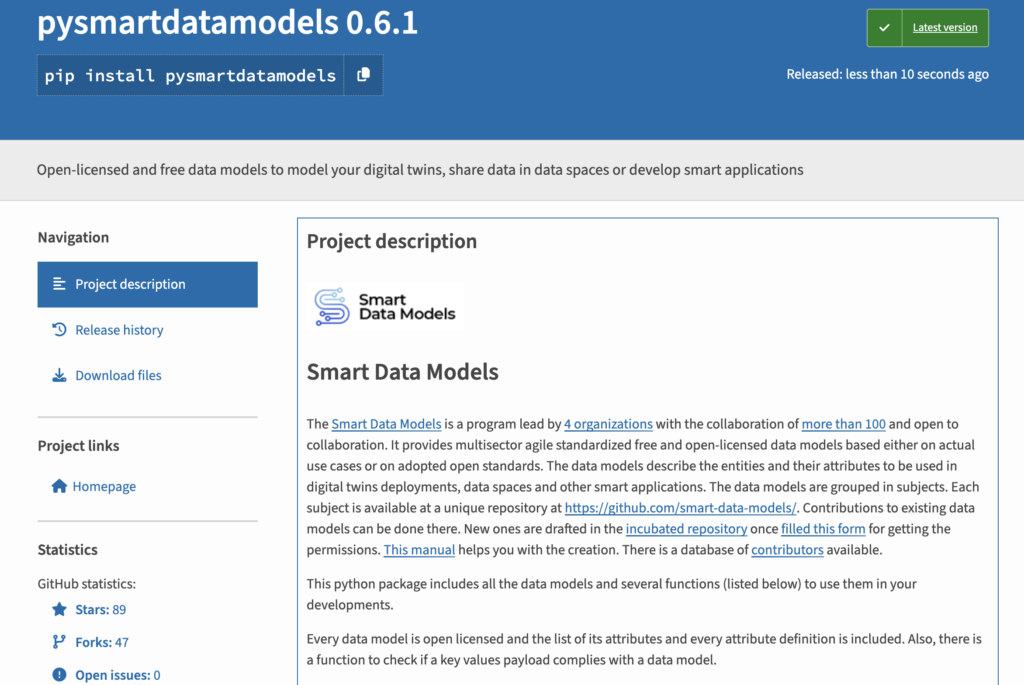Now in the tools menu (currently the last option) you have a complete list of the most relevant links to the assets of the data models compile in the Smart Data Models initiative.
You can check in the main menu -> Tools -> Metadata of the data models
The information is coded in a json format and includes:
| subject | |
| data model | |
| version of the data model |
|
| modelTags | |
| title | |
| url to $id of the schema |
|
| description of the data model |
|
| required attributes |
|
| yamlUrl link to the yaml version of the schema |
|
| jsonSchemaUrl link to the json schema (single-sourc-of-truth) |
|
| @context link to the context file |
|
| exampleKeyvaluesJson link to the NGSI v2 key values example (json) |
|
| exampleKeyvaluesJsonld link to the NGSI ld key values example (jsonld) |
|
| exampleNormalizedJson link to the NGSI v2 normalized example |
|
| exampleNormalizedJsonld link to the NGSI ld key values example |
|
| sql export in SQL of the attributes of the data model |
|
| adopters List of adopters of the data model |
|
| contributors List of contributors of the subject where is the data model |
Enjoy!








